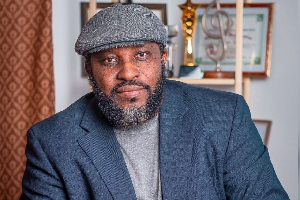Kintampo (B/A) Sept. 2, GNA - The final studies that would see the licensure and use of the RTS,S malaria candidate vaccine to control malaria in Africa has begun in Kintampo and across several sites in seven African countries.
Some 16,000 children in Africa would be vaccinated and followed under a Phase Three trial that would determine the efficacy information required for the RTS,S vaccine and the ability of the vaccine to prevent malaria and its severe form in children. The Kintampo Health Research Centre, a trial site, is overseeing the vaccination of 1,200 children out of the 16,000. Eleven sites in Ghana, Kenya, Tanzania, Gabon, Malawi, Mozambique and Burkina Faso are taking part in the clinical trials.
A Phase Two study which focused on the safety profile of the vaccine ended successfully and the Phase Three is a pre-licensure stage being conducted in a large number of children aged 5-17 moths and 6-12 weeks, before the vaccine would be put before regulators for final approval before use.
The ultimate aim of the Phase Three study is to develop a malaria vaccine that can be given to infants as part of the Expanded Programme of Immunization to offer protection against malaria. The trials are being run under a project, the Malaria Clinical Trials Alliance (MCTA), established with a 17 million dollar facility from the Gates Foundation to conduct clinical trials of new drugs and vaccines to fight malaria.
Dr Araon Offei, the Brong-Ahafo Regional Director of Health Services, said the search for a malaria vaccine to protect children and pregnant women had been a long drawn out war.
The Regional Director, who performed the launch of the Phase Three study at a ceremony in Kintampo attended by chiefs and community members, said vaccines had been found to deal with the six killer disease and they were now no longer killer diseases. He said should a vaccine be found which could cut down malaria cases by 50 per cent, the disease would no longer be a killer disease. Dr Seth Owusu-Agyei, Director of the Kintampo Health Research Centre (KHRC), said despite access to drugs, treated nets, environmental controls and the use of repellents, malaria continued to top morbidity and mortality cases in the country.
He said it was the hope that one day a malaria vaccine would be found to work as other vaccines had for the six killer diseases. Dr Owusu-Agyei said three years ago, Ghana joined other African countries to begin work on the RTS,S vaccine, which had been found to be 50 percent effective against malaria. He said the excitement was that should the efficacy of the vaccine be established under the Phase Three studies, the vaccine would chart a course for more work to be done in looking for an advanced vaccine that would be stronger and protective to offer 90 per cent protection against malaria.
Dr Owusu-Agyei said should results from the Phase Three studies prove positive, then three years from now, all the data from the trials would be assembled and presented to International bodies such as the World Health Organization and regulatory bodies to make a decision for licensure and use in Africa. He commended the people of Kintampo for supporting the vaccine trials in the area and asked that they should put in a word when community members express concerns about blood being drawn from the children taking part in the trials.
He said the trials could not be done without taking blood samples from the children because the malaria parasites lived in the blood and the disease had a lot to do with blood.
"So nananom, be our mouth piece to spread information. We need blood to do the work. It will not kill but save us." Madam Margaret Bugase, an officer of MCTA, said they would continue to support research centres in Africa to help in fighting disease and said KHRC was one of Africa's best in terms of research activities.
General News of Wednesday, 2 September 2009
Source: GNA
African scientists in final race to outdoor malaria vaccine
Entertainment











